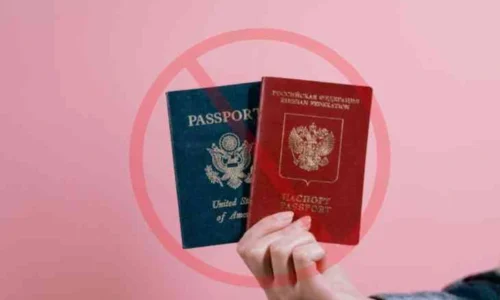Turkey to Revoke 451 Investors After CBI Real-Estate Fraud in 2025
- Ahmed hamdy Ahmed hamdy
- 0 Comments
Turkey began revocation procedures for 451 CBI cases after a real-estate fraud probe. What happened, the current $400k rules, risks, and safer options.
-
Turkish authorities announced procedures to revoke citizenship for 451 foreign investors tied to sham real-estate transactions under the Citizenship by Investment (CBI) route. The operation spanned 19 provinces, resulted in ~106 detentions, and saw the seizure of 1,240 apartments, 65 land plots, 47 vehicles, and corporate assets.
-
As of October 1, 2025, the real-estate minimum remains USD $400,000 with a 3-year hold, and applications rely on SPK-licensed valuation/reporting. Beware blog rumors claiming a higher threshold without official backing.
-
If you’re pursuing Turkish citizenship by investment, work only with government-recognized providers, insist on licensed valuations, avoid “cash-back” schemes, keep clean bank-to-bank trails, and understand dual-citizenship rules in both Turkey and your home country.
What Happened in Turkey’s CBI Fraud Case?
In late September 2025, Turkey’s Interior Ministry disclosed a nationwide operation against an organized network accused of staging collusive property sales so foreign nationals could obtain citizenship unlawfully. Officials reported about 106 detentions across 19 provinces, with seizures including a holding group, five joint-stock companies, 1,240 apartments, 65 land plots, 47 vehicles, and multiple bank accounts. Crucially, authorities said procedures have been initiated to revoke citizenship for 451 investors implicated in fraudulent transactions.
Coverage in Turkish and international outlets underscores two important nuances. First, the Interior Minister’s phrasing centers on “procedures to revoke citizenship” rather than an already-completed mass denaturalization—meaning cases will proceed through due process. Second, operational details emphasize the breadth of the investigation and the asset seizures tied to the alleged scheme.
Industry reporting (IMI) further documents how the network operated and why some applicants may have been enticed—chiefly via cash-back arrangements and inflated/false appraisals that made low-value properties appear to meet the legal threshold. These tactics are neither new nor unique, but the scale of this probe—and the announcement of revocation procedures—make it the most consequential Turkish CBI enforcement action to date.
“Revoked” vs. “Revocation Procedures”: Why Wording Matters
Some headlines suggest Turkey “revoked 451 citizenships.” The official framing in mainstream reports, however, is that authorities initiated procedures to revoke citizenship in these cases. In other words, individuals identified by the investigation face cancellation actions, but the legal outcomes depend on each case’s facts, defenses, and appeals. It’s a vital distinction for practitioners and investors: the risk is real and the direction of travel is clear, but precision protects you from overstatement.
How the Alleged Fraud Worked (and How to Spot It)
Reporting describes a pattern of fictitious or collusive sales and manipulated valuations to game the CBI threshold. In some instances, foreigners allegedly “purchased” properties at inflated paper values, then signed promissory notes or cash-back arrangements, with properties returned to the original owners after naturalization—undermining the program’s integrity. Local coverage references an internal nickname for the network (“BABATAK”) and notes the broadcast of intermediaries involved.
Red flags investors should avoid immediately:
-
“Guaranteed rebate” or cash-back, reducing the real investment below the legal threshold
-
Pressure to under-/over-declare values or to “fix” appraisal outcomes
-
Payment outside official banking channels or cash transfers without a compliant money trail
-
Tied appraisers or “in-house” valuations not on the SPK-licensed list
The Current Rules: $400,000 Real Estate + SPK Appraisal + 3-Year Hold
Despite noise online, Turkey’s official guidance continues to stipulate a minimum USD $400,000 property purchase with a three-year no-sale restriction for the real-estate pathway to citizenship, alongside alternative $500,000 capital/bank/bond routes. The Investment Office of the Presidency of the Republic of Türkiye (Invest in Türkiye) remains the most reliable public reference for program criteria.
A licensed valuation report is central to compliance. Turkey’s land registry (TKGM) has modernized appraisal policy over time, but for citizenship applications, the valuation requirement remains—and must be obtained from firms licensed by the Capital Markets Board (SPK). Several practitioner notes and circulars reiterate that citizenship files still hinge on SPK-authorized valuations.
If an intermediary suggests you can “skip” the official valuation, combine non-qualifying assets, or move cash around the formal banking system, walk away.
For a step-by-step overview of the legitimate process, see How to Get Turkish Citizenship (program types, documents, timelines, and compliance controls).
Risk, Due Diligence, and Investor Protection: A Practical Checklist
a) Verify your route and threshold: Use only the pathways recognized in current guidance (e.g., $400,000 real estate with 3-year hold). Confirm with Invest in Türkiye or official communications before entering any contract.
b) Insist on SPK-licensed valuations: Request the company’s SPK license details and confirm the report will be used for the application (not an informal “market opinion”).
c) Keep clean financial trails: Pay via bank-to-bank transfer, avoid cash, and retain receipts, SWIFT copies, title extracts, notarized translations, and valuation reports in a well-organized file. (Multiple reputable legal/industry sources emphasize these mechanics.)
d) Avoid “price games”: Never accept cash-back, side letters that contradict the deed price, or schemes that return the asset after naturalization. These are exactly the patterns under scrutiny.
e) Use independent counsel: Engage an attorney not financially tied to the seller or marketing agent. Consider a dual-review (immigration + property counsel) for significant transactions.
f) Plan your dual-citizenship posture: Confirm how Turkey treats dual nationality—and how your home country treats it—before you file.

Is Turkey Still a Good Option in 2025?
Yes—if you do it right. The program remains active as of late 2025, and the $400,000 + 3-year hold for real estate continues to be the operative threshold. Enforcement shows the authorities are prepared to cancel status where applicants (or their intermediaries) breach the rules. This encourages cleaner files and a more credible program overall.
If you want to compare CBI and Residency by Investment (RBI) routes for risk tolerance, mobility, and lifestyle, review citizenship by investment programs.
Pro tip: Some programs adjust fees, timelines, or document requirements periodically. Always validate current terms on official or government-linked sources before committing.
Turkey Citizenship By Investment: The Clean, Compliant Path (Step-By-Step)
The checklist below is a practical, compliance-first workflow for securing Turkish citizenship by Investment (CBI) via the real-estate route. It’s designed to keep your file audit-ready and aligned with the program’s core requirements—$400,000 minimum property value, a three-year no-sale hold, SPK-licensed valuation, and clean bank-to-bank payment trails.
1) Strategy & Qualification: Confirm that you and your dependents qualify (age, clean record, source of funds), and that your nationality aligns with program rules. See How to Get Turkish Citizenship for an overview.
2) Property Selection (if choosing real estate): Identify a genuine property at or above $400,000. Avoid “bundled” or “split” structures that game appraisals; insist on clear title, no hidden liens, proper zoning, and realistic rental/exit assumptions. Do not accept any cash-back promises.
3) SPK-Licensed Valuation: Order an SPK-licensed appraisal suitable for citizenship filing. Keep the full report and ensure the declared sale price is not below the appraised value.
4) Banking and Payments: Open a Turkish bank account and ensure bank-to-bank transfers with full documentation (SWIFT, receipts). Some providers list this as mandatory; it is best practice for KYC/AML clarity.
5) Title & Pledge (No-Sale Annotation): Ensure the three-year no-sale restriction is properly annotated on the title deed.
6) File Submission & Background Checks: Prepare translations, apostilles (where applicable), police certificates, family documents, and proof of funds. Maintain a master file (digital and physical) for future audits.
7) Naturalization & Post-Approval: After approval and oath/formalities, secure passports and national IDs. Keep all ownership/valuation/payment records for at least the hold period (preferably longer).
Frequently Asked Questions
Did Turkey “revoke” 451 citizenships already?
Officials said procedures to revoke citizenship were initiated for 451 investors implicated in fraudulent CBI transactions. That means cancellation actions are underway but not necessarily finalized in all individual cases.
What exactly did the police seize?
Reports cite a holding group, five joint-stock companies, 1,240 apartments, 65 land plots, 47 vehicles, and bank accounts. The operation involved ~106 detentions across 19 provinces.
What is the current real-estate threshold?
As of October 2025, the $400,000 minimum (with 3-year hold) remains in place, per the Invest in Türkiye guidance.
Do I really need an SPK-licensed valuation?
For citizenship applications, yes—valuation by an SPK-licensed firm remains integral. Circular updates have eased valuation in some non-citizenship contexts, but citizenship files still hinge on compliant appraisals.
Are “cash-back” deals illegal?
Any arrangement that reduces the genuine investment below the legal minimum or seeks to deceive authorities (e.g., false appraisals, side letters) risks criminal and immigration consequences, including citizenship cancellation. The 2025 probe spotlighted precisely these tactics.
Are You Already Hold Turkish Citizenship By Investment?
If your file is clean and fully documented, you should be fine. Still, consider doing a self-audit:
-
Keep valuation reports, title deed copies, bank transfer proofs, contracts, and tax receipts organized.
-
If an intermediary arranged anything you now suspect was non-compliant, consult independent counsel about proactive remediation (e.g., supplemental documentation, clarifications).
-
Monitor official updates and mainstream reporting (not just agency blogs) for any policy changes.
Editorial Note on Sources and Dates
Because CBI policies and enforcement actions evolve, this article references recent, mainstream coverage and official guidance:
-
Revocation procedures / operation details (451 cases; 106 detentions; 19 provinces; asset seizures): Xinhua and Turkish media coverage.
-
Fraud mechanics (cash-back, collusive sales, valuation manipulation): Daily Sabah and IMI reporting.
-
Current threshold & rules ($400k, 3-year hold; alternative $500k options): Invest in Türkiye (official).
-
Valuation (SPK-licensed) requirement for citizenship files: TKGM/valuation guidance and circular commentary.
Always reconcile your personal facts and timelines with official sources at the time you file.
At Premium Citizen, we guide families through secure, government-authorized options—never shortcuts. Our process emphasizes:
-
Licensed valuations and transparent transactions
-
Independent legal review and full document control
-
Program selection matched to your dual-citizenship, tax, and lifestyle goals
If you’re considering Turkey—or want to explore alternatives like Malta or Caribbean CBI—reach out. We’ll map a risk-managed path forward.
Review Turkey Citizenship By Investment Program
Related Articles:
Does Turkey allow dual citizenship?
How to get Turkish citizenship?






